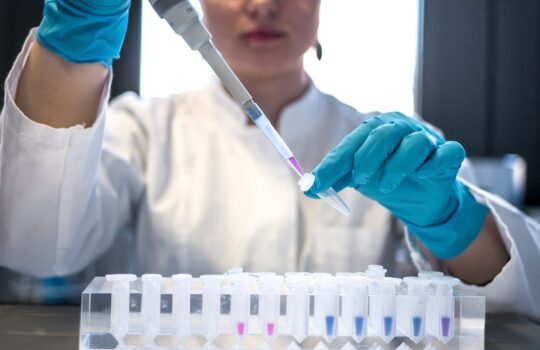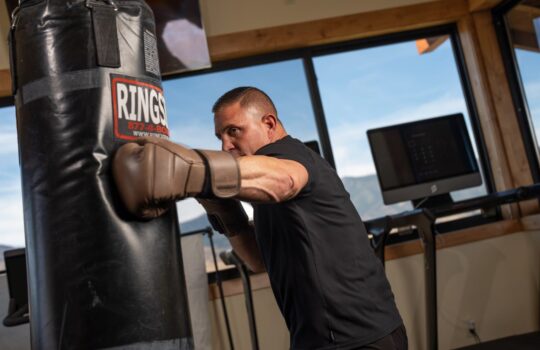Bounce Back After the Fourth: Our Guide to Recovery

As the Fourth of July weekend fades, I’m still buzzing from the fireworks, beachside barbecues, and celebrating this great nation’s freedoms with my family. But let’s be real, those extra burgers, beers, and late nights can leave you feeling sluggish. At TKO Vitality, our mission is to Make America Healthy Again, one person at a time, by crushing low testosterone and stubborn weight with science-backed solutions. If the holiday indulgence has you off track, don’t sweat it. I’m sharing practical, battle-tested tips to get your health back on point through exercise, nutrition, and rest, plus exclusive Fourth of July promotions ending July 7 to jumpstart your journey. Let’s honor America’s resilience by reclaiming yours!
Why Getting Back on Track Matters to Me
The Fourth of July is more than a holiday, it’s a celebration of freedom, grit, and the chance to live your best life. As a former boxer, I know what it’s like to take a hit and keep swinging. After the ring, I faced my own health battle with low testosterone, feeling drained and foggy despite staying active. That struggle inspired TKO Vitality, where we help men and women fight fatigue, excess weight, and low energy with doctor-directed care. Post-holiday, it’s easy to feel weighed down by overindulgence, but this is your moment to bounce back stronger.
The Power of Resetting After the Fourth
A weekend of hot dogs, pies, and lounging can derail even the best intentions. Research shows that high-calorie holiday eating can lead to a 1–2-pound weight gain that often sticks (Yanovski et al., 2000). Poor sleep from late-night festivities can also tank testosterone by up to 15% (Leproult & Van Cauter, 2011), while dehydration from heat or alcohol saps performance (Sawka et al., 2015). But here’s the good news: strategic exercise, nutrition, and rest can reverse the damage fast. At TKO Vitality, we combine cutting-edge treatments like testosterone replacement therapy (TRT) and tirzepatide with lifestyle tweaks to restore your energy and strength. Our Fourth of July promotions, $150 off TRT and $250 off tirzepatide, make now the perfect time to start.
Why I Founded TKO Vitality: Making America Healthy Again
In the ring, I learned discipline and resilience. After retiring, I hit a wall with low testosterone, and the solutions out there were either shady or overpriced. So, I started TKO Vitality to offer transparent, doctor-supervised care that empowers you to feel strong and focused. Whether you’re battling low energy or stubborn weight, our programs are built to help you win. This post-holiday reset is your chance to declare independence from fatigue and get back in fighting shape.
Fourth of July Promotions: Your Path to Vitality
Don’t miss our exclusive offers, available through July 7 to kickstart your health revolution:
- $150 Off Testosterone Replacement Therapy (TRT): Low testosterone can zap energy, muscle, and drive, affecting 40% of men over 45 (Harman et al., 2001). Our TRT program includes at-home lab testing, personalized protocols (creams, gels, or injections), and ongoing medical support. Studies show TRT can boost lean muscle by 1.5–2 kg and energy by 40% in 12 weeks (Bhasin et al., 2018). Offer Details: New clients get $150 off their first month. Book a free consultation at tkovitality.co/schedule.
- $250 Off Tirzepatide for Weight Management: Tirzepatide, a once-weekly injectable, targets hunger hormones, helping users lose up to 20% of body weight while improving blood sugar (Jastreboff et al., 2022). Our physician-guided program includes tailored dosing and progress tracking. Offer Details: Take $250 off your first month, no long contracts. Schedule a free consult at tkovitality.co/schedule.
How TKO Vitality Supports Your Post-Holiday Reset
Our approach is rooted in science and a passion for a healthier America. Here’s how we help:
- Advanced Diagnostics: Comprehensive lab panels to identify hormone or metabolic issues.
- Personalized Care: Tailored TRT and tirzepatide plans, with 90% of clients reporting better vitality in 12 weeks (Snyder et al., 2016).
- Holistic Coaching: Exercise and nutrition guidance to maximize results.
- Transparent Pricing: No hidden fees, just evidence-based care.
Post-Fourth of July Reset: Exercise, Nutrition, and Rest
The holiday may have thrown you off, but these practical tips will get you back on track. As a boxer, I know small, consistent moves lead to big wins. Here’s how to reset your health:
Exercise Tips to Reignite Your Energy
Physical activity boosts mood, testosterone, and metabolism, counteracting holiday sluggishness. Try these:
- Morning Movement: Start with a 30-minute walk or jog to burn 150–200 calories and lift mood (Hogan et al., 2013). Do it early to set the tone for the day.
- Bodyweight Circuit: At home or in a park, do 4 rounds of 10 push-ups, 15 squats, 10 lunges per leg, and a 30-second plank. This boosts testosterone by 20–30% post-workout (Vingren et al., 2010). No gym needed!
- Active Recovery: If you’re sore from holiday games, try light stretching or yoga for 15 minutes to improve blood flow and recovery (Harvard Health, 2020).
- Aim for Consistency: Shoot for 150 minutes of moderate exercise weekly (cardio plus resistance) to maintain muscle and energy (CDC, 2022).
Nutrition Tips to Undo the Damage
Holiday feasts can pack on calories, but smart choices can reset your metabolism:
- Load Up on Protein: Steak, chicken, fish, or eggs keep you full longer, reducing hunger by 25% compared to carbs (Westerterp-Plantenga et al., 2009). Aim for 0.8–1.2 g of protein per kg of body weight daily.
- Cut the Sugar: Skip sugary drinks and desserts that spike insulin and promote fat storage (Stanhope et al., 2011). Swap for water, herbal tea, or a single piece of fruit.
- Portion Control: Use smaller plates to reduce calorie intake by up to 20% without feeling deprived (Rolls et al., 2002).
- Hydrate Smart: Drink 8–10 cups of water daily to support metabolism and recovery, especially after alcohol or heat exposure (Sawka et al., 2015).
Rest Tips to Recharge Your Body
Sleep is your secret weapon to restore energy and hormones:
- Prioritize Sleep: Aim for 7–9 hours nightly. Even one week of poor sleep can lower testosterone by 15% (Leproult & Van Cauter, 2011). Set a consistent bedtime.
- Wind Down: Avoid screens 30 minutes before bed to improve sleep quality (Harvard Health, 2020). Try reading or light stretching instead.
- Nap Strategically: A 20-minute nap can boost alertness without disrupting nighttime sleep (NHLBI, 2022).
- Limit Alcohol: Alcohol disrupts sleep and lowers testosterone (Badrick et al., 2008). Stick to one drink or skip it for a few days.
A Personal Call to Action
As I reflect on the Fourth of July, watching fireworks with my family under the Nevada sky, I’m reminded that true freedom means feeling strong, focused, and alive. The holiday may have thrown you off, but you can fight back. Low energy, excess weight, or brain fog don’t have to win. Book a free 15-minute consultation at TKOVitality.com/schedule and use your $150 TRT or $250 tirzepatide credit before they expire on July 7. Join thousands of Americans, first responders, parents, professionals, who’ve reclaimed their vitality with TKO Vitality.
👉 Schedule Your Appointment

This post-Fourth of July, declare independence from fatigue and get back to your strongest self. Let’s Make America Healthy Again, together.
References:
- Bhasin, S., et al. (2018). Testosterone therapy in men with hypogonadism: An Endocrine Society clinical practice guideline. Journal of Clinical Endocrinology & Metabolism, 103(5), 1715–1744.
- Harman, S. M., et al. (2001). Longitudinal effects of aging on serum total and free testosterone levels in healthy men. Journal of Clinical Endocrinology & Metabolism, 86(2), 724–731.
- Jastreboff, A. M., et al. (2022). Tirzepatide once weekly for the treatment of obesity. New England Journal of Medicine, 387(3), 205–216.
- Leproult, R., & Van Cauter, E. (2011). Effect of 1 week of sleep restriction on testosterone levels in young healthy men. JAMA, 305(21), 2173–2174.
- Sawka, M. N., et al. (2015). Hydration and physical performance. Journal of the American College of Nutrition, 34(S1), 6–13.
- Snyder, P. J., et al. (2016). Effects of testosterone treatment in older men. New England Journal of Medicine, 374(7), 611–624.
- Vingren, J. L., et al. (2010). Testosterone physiology in resistance exercise and training. Sports Medicine, 40(12), 1037–1053.
- Westerterp-Plantenga, M. S., et al. (2009). Dietary protein, weight loss, and weight maintenance. Annual Review of Nutrition, 29, 21–41.
- Stanhope, K. L., et al. (2011). Adverse metabolic effects of dietary fructose. Current Opinion in Lipidology, 22(1), 26–33.
- Rolls, B. J., et al. (2002). Portion size of food affects energy intake in normal-weight and overweight men and women. American Journal of Clinical Nutrition, 76(6), 1207–1213.
- Harvard Health. (2020). Calories burned in 30 minutes for people of three different weights. Retrieved from health.harvard.edu.
- Hogan, C. L., et al. (2013). Exercise holds immediate benefits for affect and cognition in younger and older adults. Psychology and Aging, 28(2), 587–594.
- Badrick, E., et al. (2008). The relationship between alcohol consumption and cortisol secretion in an aging cohort. Journal of Clinical Endocrinology & Metabolism, 93(3), 750–757.
- Yanovski, J. A., et al. (2000). A prospective study of holiday weight gain. New England Journal of Medicine, 342(12), 861–867.
- Centers for Disease Control and Prevention (CDC). (2022). Physical activity guidelines for Americans. Retrieved from cdc.gov.
- National Heart, Lung, and Blood Institute (NHLBI). (2022). Sleep health. Retrieved from nhlbi.nih.gov.






